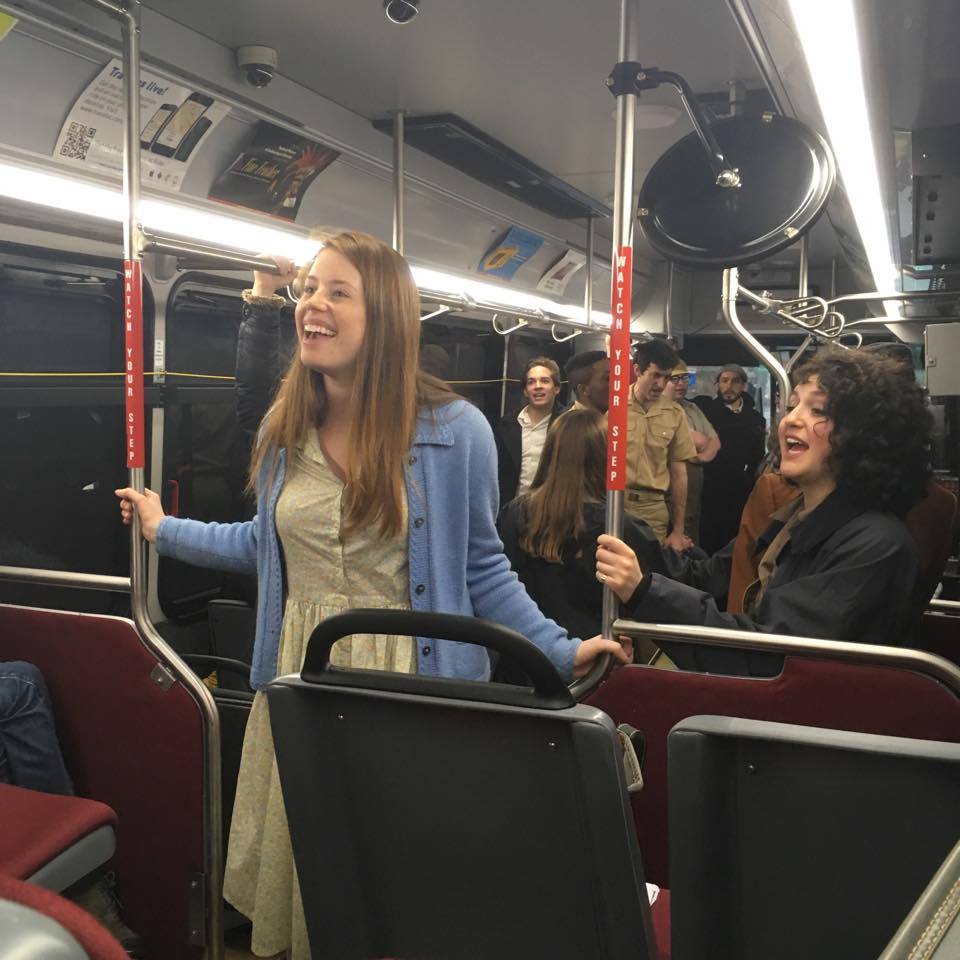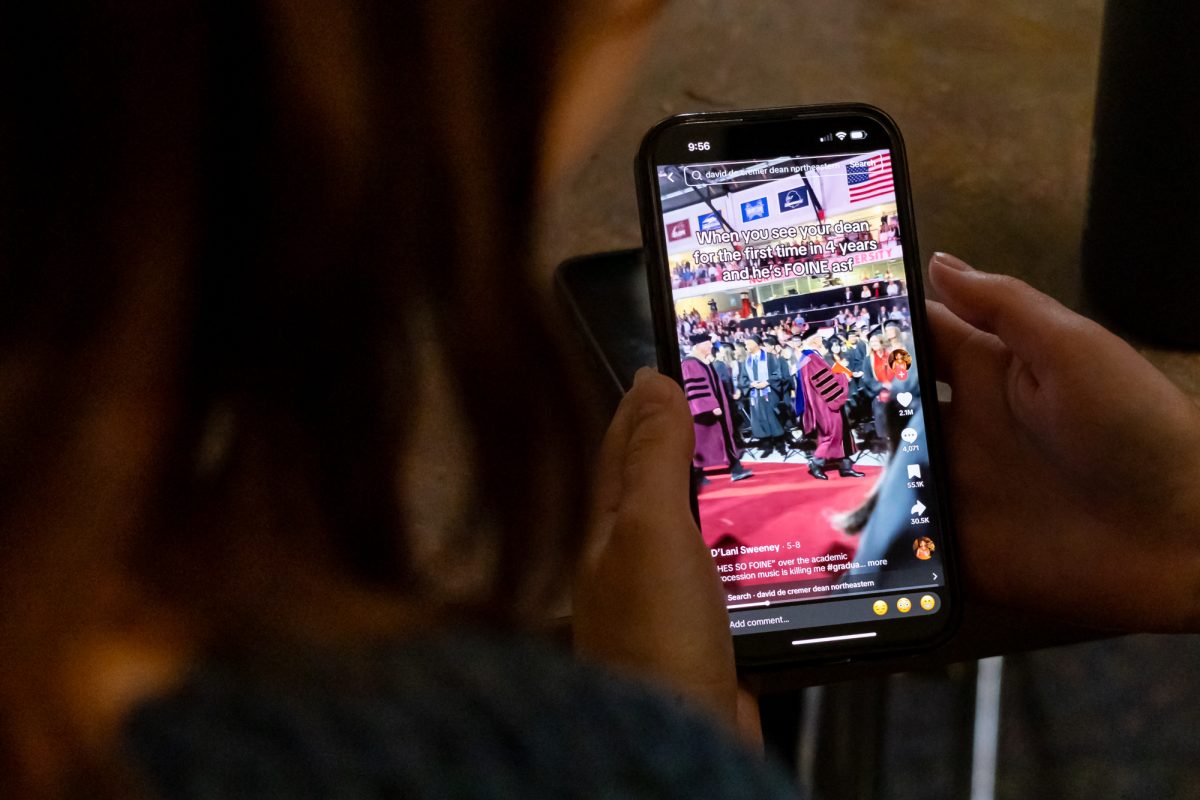By Priya Amin, news staff
This season, the American Repertory Theatre (ART) is producing the musical “Violet” as part of their “The Mini Series: Performances for Small Audiences” at Oberon, ART’s stage in Cambridge. This production of “Violet” is different from other versions because the audience is immersed directly into the show. Rather than on a stage, the show will occur on a bus which audience members will board and ride around Cambridge.
“I don’t think we really realized what it was [to put the show on a bus] until it came to life, but once it existed we were really excited about the form and the mode of storytelling for this particular story and how powerful it could be to allow people to go on Violet’s journey with her,” said Sammi Cannold, director of the production.
This show, like others in the series, is designed for a small audience. Twenty-five people will join the titular Violet on a bus to Tulsa, Oklahoma, in 1964. The musical is based on the short story “The Ugliest Pilgrim” by Doris Betts. It tells the story of a woman named Violet who hopes to remedy her face, which was disfigured during an accident at a young age. “Violet” was first performed Off-Broadway in 1997. It was written by Brian Crawley and composed by Jeanine Tesori.
Allie Trimm, the actress portraying Violet, said the play’s story is universal: Learning to love and accept oneself. She said that while the story seems to pertain more to young women who feel the burden of insecurity, its ideas have a range of applications.
“A huge moral of this piece is that happiness comes from within and self-acceptance is about your own journey,” Trimm said. “It’s not about what anyone else or anything else can give you. It’s about loving yourself and embracing the pieces of yourself which you don’t what to accept. I think anyone can watch this show and be able to relate to coming to terms with a part of their life which has given them hardship.”
Cannold previously directed “Violet” in fall 2013 while attending Stanford University. As a freshman, she applied for a grant through a program called “ReDesigning Theater.” The grant requested students do something creative with space in a production. Through this prompt, she arrived at the idea of doing “Violet” on a bus.
Cannold said musicals are effective because the music touches conspicuously on what the characters are feeling. She hopes the smaller audience and immersiveness of the show will allow it to captivate audiences and resonate with them. The bus used for the production is smaller than the one used at Stanford, though it has more seats.
“When you’re telling a story to 28 people versus 1,200, there’s a certain kind of individualization that can go on. [Violet]’s not just looking in your direction; she’s looking in your eyes,” Cannold said. “I direct theatre on many sales, but I think this one is really exciting because you get a very small, personal experience.”
Cannold has worked on immersive pieces before and said the experience can sometimes make audiences uncomfortable. Immersive performance can feel very different to actors as well. Trimm said the proximity of the audience presented new challenges as an actor even the smallest actions could not go unnoticed, and therefore had to be more authentic.
Trimm said she did not know much about “Violet” prior to auditioning, and even after initially accepting the role. As she has worked on the show and learned more about “Violet,” she began to discover more about herself and push her boundaries. Trimm stopped wearing makeup to rehearsals, which made her uncomfortable at first, but also showed her how uncomfortable she is with herself without makeup.
“It was very revealing to me. If someone had asked me this before doing that, I would’ve been like, ‘Yeah, I have super high self-confidence. I love myself. I don’t have any insecurities about the way that I look,’ Trimm said. “But you push yourself outside your box and you can discover a lot.”
Though this is Trimm’s first time working with ART, Cannold has worked with them before several times. She loves working with the company and its message. Cannold said ART’s vision for the future of theatre aligns well with “Violet.
“The mission of the ART is expanding the boundaries of theatre,” said Emma Watt, programming manager at Oberon. “There’s a lot of different forms that can take. Oberon, for us, really has to do with experiments in the social nature of theatre and in trying to support work that is creative in form and that captures the audience on a very personal level.”
“Violet” will run until April 15. Tickets are available for $35 through ART’s website.









